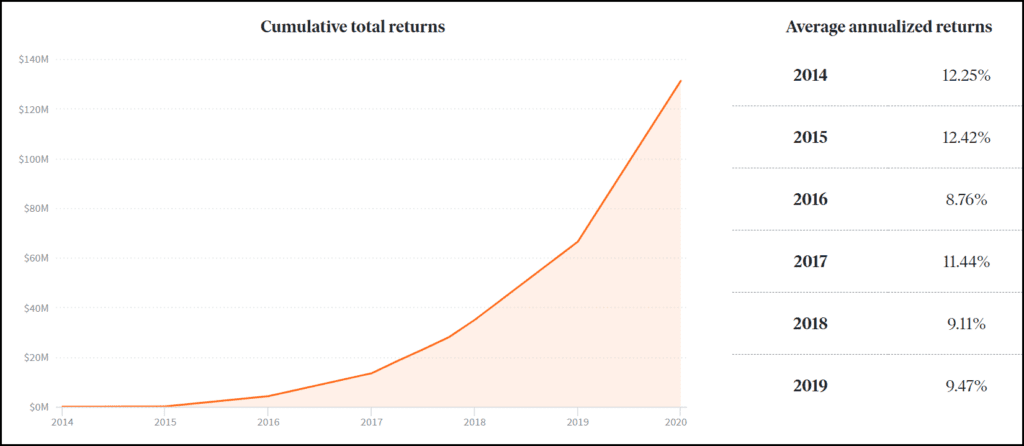With the rise of real estate investment software and real estate crowdfunding apps, investors seeking to bring balance and diversification to their portfolio have more options than ever. However, this brand-new accessibility can bring new problems such as trying to decide which real estate investment strategy is the right one? With options like REIT’s, rental properties, and peer-to-peer lending, finding a successful real estate investment comes with a lot of due diligence. So, today, we homed in on the equity side of real estate investing and looked at two great apps you can use for a real estate equity investment.
We touched on real estate investment strategies in the past and showed you how a blended investment of equity and debt could outperform the stock market. Debt investments such as peer-to-peer lending can be an excellent strategy, but we want to focus on what a real estate equity investment looks like and how you can invest in one today.
A real estate equity investment is when you invest capital into a real estate asset and assume some form of ownership. An example of a real estate equity investment is purchasing a house with the intent of using it as a form of rental income or investing in Real Estate Investment Trust (REIT) or receiving capital gains from selling an owned property.
A real estate equity investment can also be considered real estate passive income as opposed to real estate active income, which is when you are hands-on, reconstructing or flipping a house for the intent of selling it for more than what you put into the house.
Passive real estate investing is an excellent option that can provide you an additional source of income while diversifying your overall portfolio.
So, how can you invest in a real estate equity strategy and how can you determine if it is the right approach for you?
Fundrise and Crowdstreet are two great choices when it comes to real estate equity investing. These online real estate apps give investors the opportunity to invest in real estate through varied approaches.
In evaluating these two real estate platforms, we looked at five critical criteria to determine the potential benefits:

Fundrise is an online real estate investing app that allows non-accredited investors the opportunity of investing in real estate (both debt and equity). However, it is the equity side of Fundrise’s Real Estate Investment Trusts that is the primary product.
The Fundrise portfolio takes a “value investing” approach where their network of experts acquire assets for less than what they believe is the intrinsic value. The team then begins to increase the value of each asset over time through hands-on management in partnership with local operators.
Fundrise is a great platform for equity investors seeking to diversify their portfolio through real estate passive income. Investors who understand the overall risk to real estate investing and do not mind a lengthy hold period (5+ years). Almost all successful real estate investing strategies take time to pay off as an undervalued real estate asset appreciates.
Investors pay a.15% annual investment advisory fee. This means that over a 12-month period you will pay $1.50 for every $1,000 invested. In addition, there is a .85% annual asset management fee. This means that you pay $8.50 for every $1,000 invested over a 12-month period.
Any U.S citizen or permanent resident residing in the U.S. who is over the age of 18. There is no accreditation required. There is a $500 minimum for a Starter Portfolio, $1,000 for Core plans (Supplemental Income, Balanced Investing, Long-term growth). $10,000 min for Advanced Account level, $100,000 for Premium level)
The mobile app is a seamless, “one-question-at-a-time” set up. Depositing funds is a simple verification process. Fundrise also provides a great understanding on how your portfolio is built. You can see in-dept details of each of your holdings (or projects). Clean and easy use of the app.
Finding critical information on the website was quite easy. Nothing was hidden or made difficult to find. I also love seeing transparency around results which show to be very promising over the last five years.

Fundrise’s eREIT provides a great passive real estate investing strategy which generally produces income through buying and managing buildings or holding mortgages. I particularly appreciate the tiered approach so those new to real estate investing can ease into their investments as they learn the ropes.

CrowdSreet offers real estate equity investment opportunities the same way Fundrise does. But a lot of the comparison ends there.
CrowdStreet offers commercial real estate crowdfunding opportunities where the investor picks individual commercial properties and interact with the project sponsor or the investor can buy CrowdStreet funds. These are composed of a diverse portfolio of real estate projects.
CrowdStreet is only for accredited investors and the minimum investment is $25,000. With the economy expecting a significant rebound due to COVID vaccines and stimulus, investing in commercial real estate could be a very lucrative opportunity, if you can afford it.
There are no fees to register for CrowdStreet’s platform, but fees vary by project and there is a .5% to 2.5% fee for invested capital of CrowdStreet’s fund.
CrowdStreet requires investors to be accredited and the minimum investment is $25,000.
CrowdStreet’s platform is revolutionary in that it now allows investors to easily access complex investments at the click of a button. Imagine 10 years ago if you wanted to invest in commercial real estate. It was primarily reserved for billionaires. So, while you still need to have a high net-worth and be accredited, the fact that you could invest in complex, commercial real estate projects is truly eye-opening.
Finding critical information on CrowdStreet’s website was very easy. They also provided insight into their results. With 40 confirmed realized deals, CrowdStreet’s results should make any investor interested in equity investments through commercial real estate take notice.
This annualized return metric spreads cash flows and equity return over the course of the entire holding period.
The total cash distributions received from an investment, divided by the total equity invested.
The amount of time from the date of the purchase to the date of the sale.
CrowdStreet has an awesome selection of real estate equity opportunities. They offer 5-15 private equity investment opportunities that allow investors to choose from single-asset projects and funds.
Fundrise and CrowdStreet are two outstanding passive real estate investing options. They cater to two different investors with Fundrise geared to new investors and CrowdStreet targeting accredited investors. With the real estate market set to recover over the next several years, these are two online real estate apps investors should take note of.